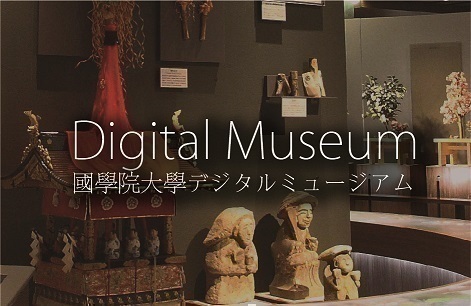- トップ
- Encyclopedia of Shinto
- Amenouzume
Encyclopedia of Shinto
| Main Menu: | |
| Links: |
詳細表示 (Complete Article)
| カテゴリー1: | 2. Kami (Deities) |
|---|---|
| カテゴリー2: | Kami in Classic Texts |
| Title | Amenouzume |
| Text | [Ame no uzume no kami](Kojiki)(Nihongi) Other names: Ame no uzume no mikoto(Kojiki,Nihongi) The goddess who danced so as to lure Amaterasu from the heavenly rock cave. At the Descent of the Heavenly Grandchild (tenson kōrin), she was sent along as one of the "chiefs of the five clans" (itsutomonoo), and became known as the ancestral kami of the clan Sarume no kimi (see below). Both Nihongi and Kojiki relate that after Amaterasu hid away in the rock cave of heaven, Amenouzume underwent divine possession (kamigakari), arraying herself with willow and other plants before the cave's door, setting her clothes in disarray and exposing her breasts and genitals while stamping on an overturned tub. This behavior drew amused exclamations from the other assembled kami, and attracted the curiosity of Amaterasu, who at last came out from the cave. Kogo shūi notes that Uzume's behavior on this occasion was the origin for the ceremony of spirit-pacification (chinkonsai), a religious service performed by the Sarume clan. In addition to her role as patron kami of actors and other performing arts, Uzume is also viewed as having the role of negotiator with new, unknown beings. According to Kojiki, Amaterasu and Takamimusuhi told her, "While but a gentle maid, you are a kami victorious when facing your foes," and thus sent her to confront and ascertain the identity of the kami Sarutahiko, who stood at the border between the Plain of High Heaven and the Central Land of Reed Plains. In an "alternate writing" recorded in Nihongi, it is stated that the other kami were fearful of Sarutahiko's weird appearance, and refused to meet with him, but Uzume bared her breasts and approached him with a derisive laugh. Thereafter, the two kami shared the role of guide for Ninigi as he proceeded on his descent, and Uzume accompanied Sarutahiko to his resting place in Ise upon completion of his role. In recognition of her service to the Heavenly Grandchild, Uzume was granted a new name based on Sarutahiko's, thus becoming Sarume no kimi, or chief of the Sarume clan. According to Kojiki, while in Ise, Uzume made the fish swear obeisance to the Heavenly Grandchild; only the mouth-less sea cucumber did not speak, so Uzume used a knife to cut a slit in it for mouth. In this episode, the Sarume no kimi are thus portrayed as being the first to receive offerings at Ise. In addition, another "alternate writing" transmitted by Nihongi notes that it was Uzume who warned Amaterasu of Susanoo's reapproach to the Plain of High Heaven after he had once been banished. Kogo shūi explains the origin of Uzume's name as meaning a "fearsome and courageous woman," but her divine personality was related more to the superiority of laughter and harmony than to confrontation and trepidation based on overwhelming strength. Further, based on the fact that the Chinese character for kanzashi (hair pin) is used in her name to indicate uzu, the name may have originated from words relating to the hair pins and other accoutrements worn by a divine medium (see miko). -Mori Mizue |




